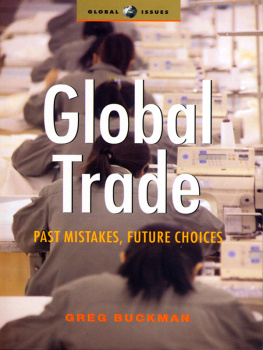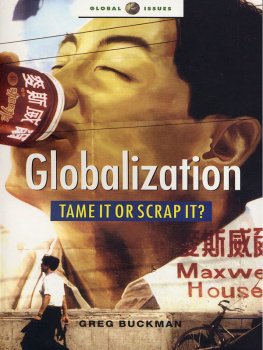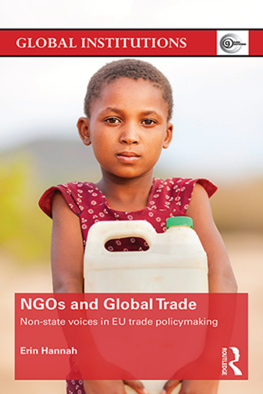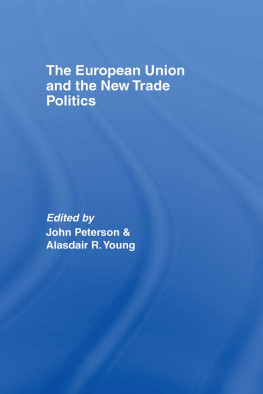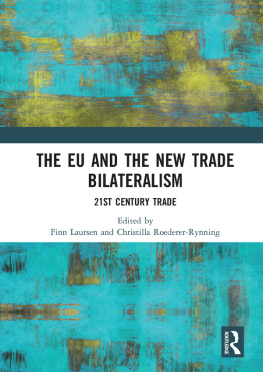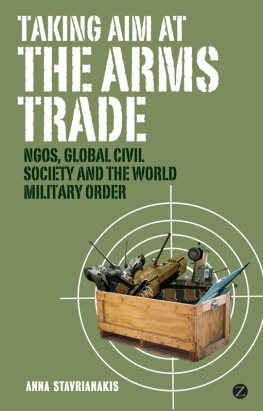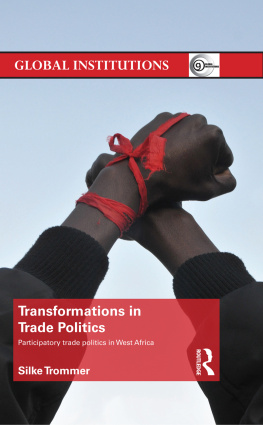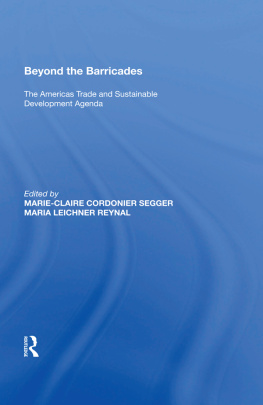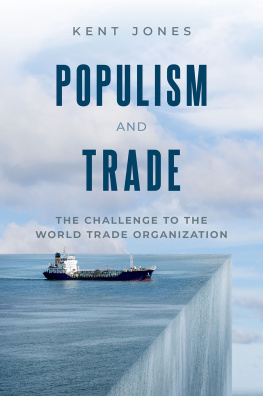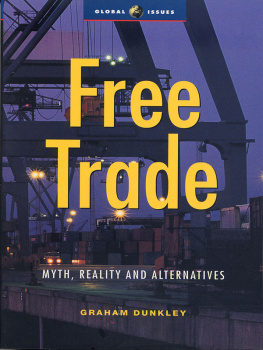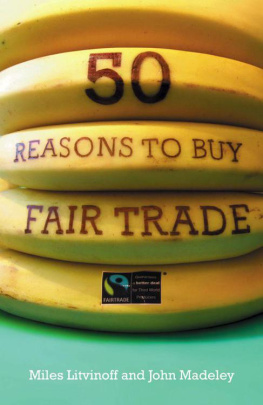Praise for this book
Global Trade is an interesting new approach to global trade issues part textbook, part critique of mainstream policies, and part alternative perspective on where we might go from here. All of these angles are desperately needed and they rarely come together in mainstream texts. Here they do, updated for the main debates in not only the corridors of power, but also the halls of academia and the meeting rooms of NGOs. This makes the book extremely valuable.
Graham Dunkley, author of The Free Trade Adventure: The WTO, the Uruguay Round and Globalism: A Critique (2000) and Free Trade: Myth, Reality and Alternatives (2004)
About the author
Greg Buckman is former national finance manager of the Wilderness Society of Australia and former treasurer of the Australian Greens. He is also a past co-editor of their magazine, Green . He is an economic policy adviser to the Australian Greens and has undertaken extensive economic research, particularly on issues concerning globalisation, poverty, forestry and energy. His long involvement with the environment movement goes back to the successful international fight to save the Franklin River in Tasmania in the early 1980s. He is also the author of Globalization: Tame it or Scrap it? published by Zed Books in 2004.
Global Trade
Past Mistakes, Future Choices
__________________________
Greg Buckman
Fernwood Publishing Ltd
Halifax, Nova Scotia
Books for Change
Bangalore
SIRD
Kuala Lumpur
David Philip
Cape Town
Zed Books
London & New York
Global Trade was first published in 2005 by
In Canada: Fernwood Publishing Ltd,
8422 St Margarets Bay Road (Hwy 3) Site 2A, Box 5,
Black Point, Nova Scotia, BOJ IBO
This ebook edition was first published in 2013
In India: Books for Change,
139 Richmond Road, Bangalore 560 025
In Malaysia: Strategic Information Research Development (SIRD),
No. 11/4E, Petaling Jaya, 46200 Selangor
In Southern Africa: David Philip (an imprint of New Africa Books),
99 Garfield Road, Claremont 7700, South Africa
In the rest of the world: Zed Books Ltd, 7 Cynthia Street, London NI 9JF, UK,
and Room 400, 175 Fifth Avenue, New York, NY 100 10, USA
www.zedbooks.co.uk
Copyright Greg Buckman 2005
The right of Greg Buckman to be identified as the author of this work has been asserted by him in accordance with the Copyright, Designs and Patents Act, 1988
Designed and typeset in Monotype Bembo by Long House Publishing Services
Cover designed by Andrew Corbett
All rights reserved
A catalogue record for this book is available from the British Library
Library of Congress Cataloging-in-Publication Data available
Library and Archives Canada Cataloguing in Publication
Buckman, Greg, 1960
Global trade : past mistakes, future choices / Greg Buckman.
Includes index.
ISBN 978 1 84813 692 2
Contents
Regional trade deals
Global warming
Figures and Tables
To Jill and Ted
whose spirit lives on
Introduction
When I was a youngster in the 1960s and 1970s it was rare to turn a product over and find Made in Japan or Made in West Germany written on it. Thirty years later is rare not to turn a product over and find something like Made in China written on it. Today we are all part of a vast global marketplace where the production of something from several thousand kilometres away is now no more out of the ordinary than the production of something from several hundred kilometres away was back in the 1960s and 1970s. To many the emergence of this global marketplace may seem advantageous or at the very least fairly benign. But economics is largely about choices and we have only been able to create this vast global marketplace because we have made particular choices about our environment, the global distribution of income and global economic power relationships. In economics, as in life, choices are rarely fixed however they often have to be remade according to new and evolving circumstances and limitations. Even though the world has so far chosen to create a vast global marketplace it wont find future choices about whether to expand or at the very least maintain the global marketplace as easy to make as they have been in the past. Very real constraints are closing in around the worlds global marketplace.
This book is all about the choices that surround global trade. It reflects on the choices made so far and it speculates about the choices of the future. Its a digest of where global trade has come from and where it may go. Trade is not an isolated phenomenon, however, and both its past and its future are inexorably linked to many other influences including technological development, energy use and societal change. The interrelatedness of global trade makes it hard to make the story of trade a simple one but this book has nonetheless attempted to tell the story in clear and concise terms. The first six chapters tell the story of global trade so far while the final four examine its future options and constraints.
Even though the story of global trade has already run for more than five hundred years, the book makes it clear that there is still a lot humankind needs to learn about it and that the story of global trade is therefore a long way from over. There are many more chapters yet to be written.
A history of global trade
It is easy to take a given phenomenon and project backwards convincing oneself along the way that it has always been much as it is at present. It is particularly easy to do this with global trade, to kid oneself that todays highly integrated web of global trade must always have been much as it is at present. It is also easy to think that because high-income countries dominate todays world trade they must always have dominated global trade. But both impressions are a long way from the truth. Because these impressions are incorrect it is important to have an understanding of the evolution of global trade so one can have a proper context for the politics of it.
Although integrated global trade is a relatively new phenomenon, various forms of trade between different parts of the world have been in existence for a long time; in fact some types of global trade have existed for a very long time. Ivory from Africa has been discovered in Celtic graves in Britain. Volcanic glass mined in prehistoric times in present-day Turkey has been found throughout lands thousands of kilometres from the country. What is new is the highly integrated nature of todays global trade. Today all continents receive goods and services from all other continents but that is something that has only happened over the past few centuries before that there were only limited trade connections between continents.
Early continental trade networks
European colonisation around the world, which began in the sixteenth century, was the force that first linked together all the worlds regional trade networks, but before the sixteenth century all continents had their own trade and in some limited instances some continents traded with other specific continents well before Europeans arrived on the scene.
In Asia early trade across the continent was considerably enhanced by the rise of Islam in the seventh century.
In Africa a trade route that crossed the Sahara desert from West Africa to the Mediterranean meant that a connection between Africa and other continents existed a long time before the sixteenth century. The trade route was considerably enhanced by the arrival of camels into Africa in the first century. Key commodities traded via this route were gold, slaves and salt.
In the Americas there was significant trade across its continents before the arrival of Europeans, although the trade was nowhere near as sophisticated as that in Asia, Europe or Africa.
Next page
